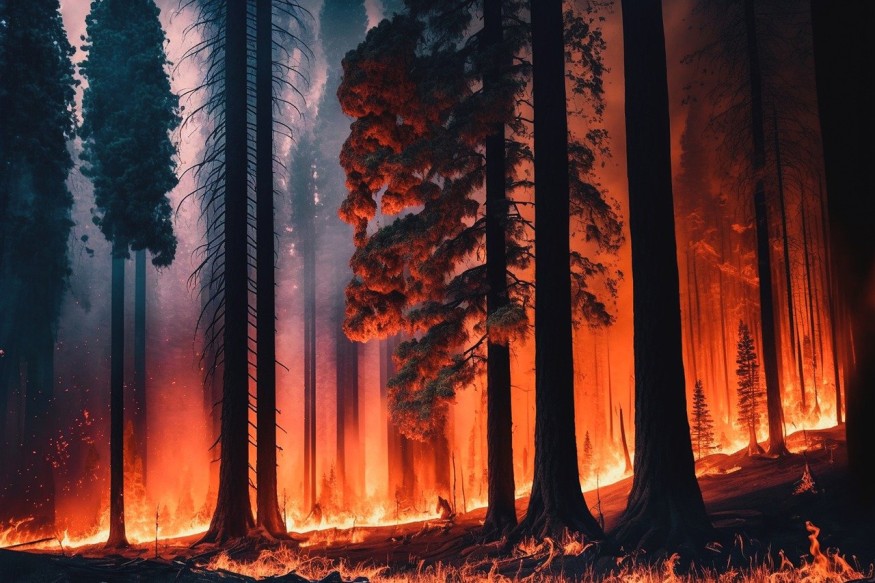Russian wildfires have engulfed swathes of land in the republic of Sakha, the country's largest and coldest region, according to local authorities. About 100 wildfires have spread across the region, as well as in Moscow, near Russian President Vladimir Putin's home. Authorities add the combined affected area of the blaze is around half the size of the country of Luxembourg.
Scientists have blamed human-induced climate change to be behind the raging fires. In recent years, significant warming has been reported across Russia's Arctic regions. This year alone, other parts of the country, including in the Urals Mountains, were ravaged by wildfires damaging homes and causing evacuations. Some environmental activists claim that these flames could also be man-made.
Russian Wildfires

In a post on the social media platform X, formerly known as Twitter, work is underway to quell "51 fires per 105,000 hectares" in Sakha as of Monday, August 7, according to a cited report of Russia's Ministry of Ecology, Nature Management and Forestry. The video was taken by the region's Ministry of Emergency Situations' main directorate.
Работа по тушению 51 пожара на 105 тыс. га ведется в Якутии. Об этом сообщили в министерстве экологии, природопользования и лесного хозяйства республики:https://t.co/U3yyfHmEn6
— ТАСС (@tass_agency) August 7, 2023
Видео: ГУ МЧС России по Республике Саха (Якутия)/ТАСС pic.twitter.com/xPCBYMwf6N
The X post shows a video where firefighters are tackling the blaze in a forest area, where smoke is hovering above it. Amid the catastrophe, there were no immediate reports of fatalities linked to the Russian wildfires.
Meanwhile, the fire in Moscow struck a warehouse, just four miles from President Putin's official home. The Moscow fire has spread to more than 21,500 square feet in Odintsovo, located west of Moscow.
As mentioned earlier, this is not the first time that fires broke out in Russia this year. In May, massive wildfires also killed at least four people in the Ural Mountains.
Russian Climate Policy
Not even some of the cold Russian forests are spared from the global impact of the current climate crisis, ranging from global sea level rise due to melting glaciers to worsening extreme weather events.
According to the organization Climate Chance, Russia's climate policy is under fire as forest fires are depleting carbon sinks. This comes as the Russian government and non-state actors, in recent years, have implemented policies to mitigate the growing wildfire threat.
Although Russia has engaged in reforms surrounding wildfire mitigation efforts, extending to local governments, the country is facing a gradual depletion of the net absorption capacity of its forests until the year 2040 due to various reasons, including aging trees.
Global Warming
For decades, climate scientists have warned that global warming can trigger increased frequency and intensity of wildfires. Countries in tropical and subtropical regions are at risk, wherein high temperatures and humid conditions greatly contribute to fire weather conditions.
According to the National Weather Service, fire weather is a parameter used by meteorologists to determine conditions that are favorable to fire growth and spread. Some of these parameters include wind speed and direction and soil moisture.
The risk of wildfire threat increases as the planet continues to warm due to greenhouse emissions and fossil fuel burning, scientists have warned.
Related Article: Maui Wildfire Death Toll Now at 53, Expected To Rise
© 2025 NatureWorldNews.com All rights reserved. Do not reproduce without permission.





